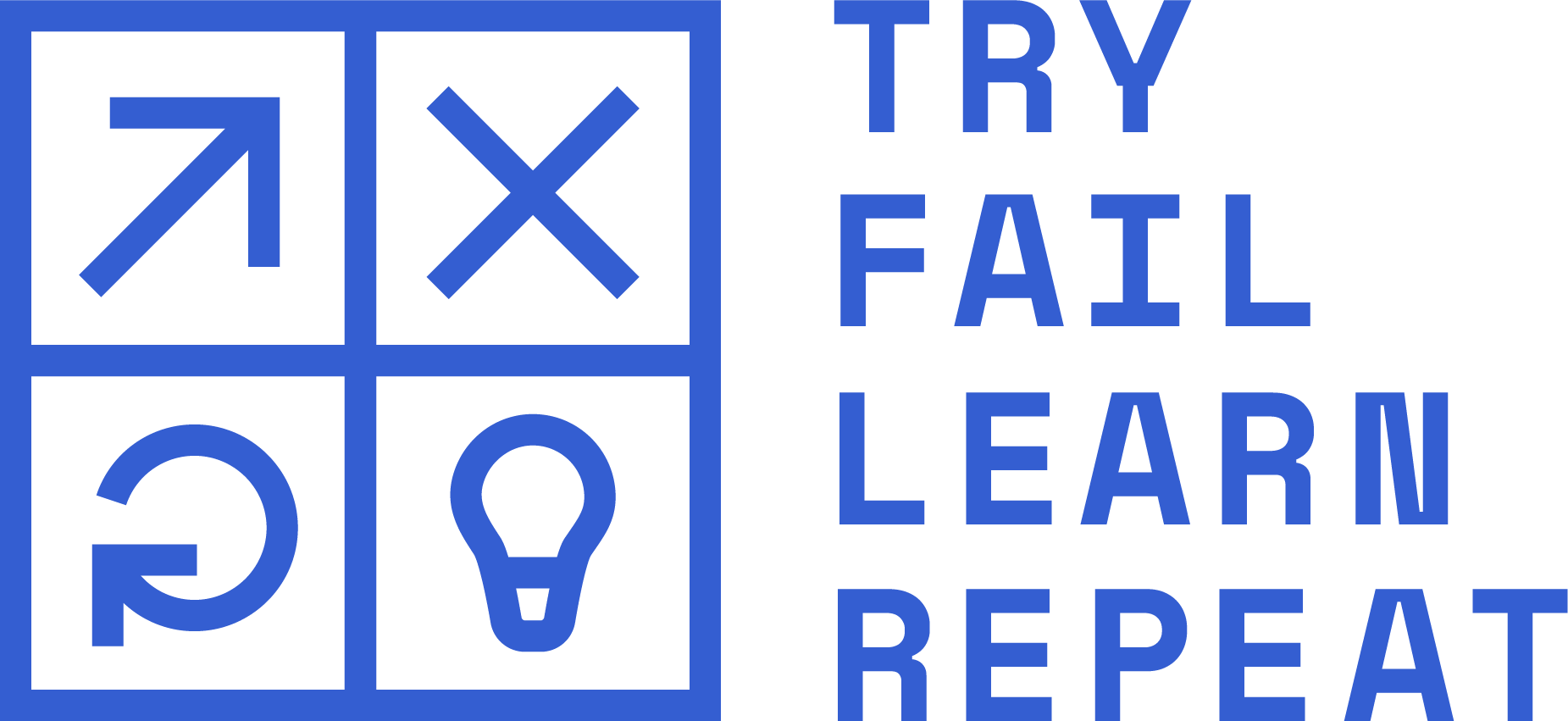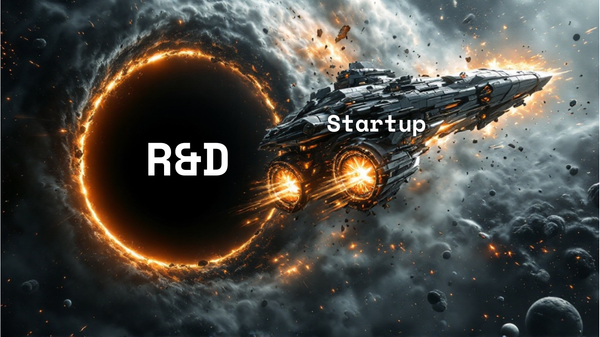From Scientist to Salesman: One of the Most Important Experiences for Me

There's no doubt about it - things could have been better. My co-founder Florian and I are standing in an empty office, the workstations are empty and the only thing we have left are two phones. It's sometime in the fall of 2014 and yesterday we had to let 7 out of 9 employees go. The last two employees are ourselves and we are no longer paying ourselves a salary. To be honest, we couldn't pay ourselves a salary either, because we're on the verge of bankruptcy. It's not five to twelve, but rather a few seconds before the point at which we should pull the plug and file for insolvency.
What happened?
Our follow-up financing was canceled one day before the notary appointment, our investors see no traction in the market and do not want to invest further in product development without clear signals from the customer. We are desperate and angry, and we blame our investors who, in our opinion, obviously! - don't understand our vision and are letting us down. There were arguments within the team, our third co-founder left, and we have to admit that despite all-nighters, winning business plan competitions, and good feedback from beta users of our software, our dream of building a successful company is rapidly falling apart.
After standing in this empty office for some time, it dawned on us that our investors might be right about one thing: A product only proves its value when people are willing to pay for it. We realized that we were relying solely on our product development. We believed that a good product would sell itself. But with statements like "We just have to develop this feature, then Labfolder will sell like hotcakes" or "This is the killer feature, if we develop this we'll have product-market fit", we were actually only lying to ourselves. The gravitational effect of R&D had completely captivated us.
What we were actually missing was quite simple: We lacked sales. We were close to our users and had developed our software with feedback from beta testers. But what we hadn't structured and continuously collected was feedback on actual willingness to pay. We didn't have the drive to convert our initial customer contacts into revenue. We would rather spend hours discussing potential improvements and new features with users, rather than relentlessly working toward the goal of demonstrating existing value and sending an invoice.
But how were we supposed to know? Our scientific education did not teach us how to sell.. On the contrary: sales is something that is considered unsophisticated in the academic ivory tower. Salespeople are seen as sleazy vacuum cleaner salesmen. For scientists, salespeople are unpleasant guys with dishonest intentions. As a doctoral student in the life sciences, you definitely don't want to end up as a pharmaceutical salesperson. It's an absolute career no-go and ranks at most half a step higher than cab driver. And so we thought that we could manage without sales.
Until we found out that without putting efforts in sales, you don’t sell, and without sales you can't bring in fresh money and without fresh money you can't pay people.
What did we learn?
Thank goodness we didn't give up back then. We continued to believe in our vision and decided to carry on. And, thank God, we drew the right conclusions from our failure and invested in sales. One positive effect of our desolate situation was that we didn't really have any other choice. The office was empty and there were no more software developers who could have developed new features. There were only two phones and two founders left. So we had to sell what we had. We no longer had the option of waiting for a killer feature. So we invested our last bit of money in sales coaching and got started.
We made cold calls - day after day, often from early morning until late at night. Making calls, trying to get past the secretary, pitching, following up, hoping. Updating CRM, improving sales scripts, sourcing new leads, pre-qualifying and getting back on the phone.
And interestingly, this "unsophisticated" sales work started to be fun. In hindsight, I would even say that it was one of the best times at Labforward. It was an effort to "lower myself" to sales, but it was a surprise how varied, instructive and fulfilling the work turned out to be. Not only were we able to send out the first small invoices quite quickly and suddenly had some money in our account again. We also learned more about our product and the real killer features than we did from talking to a few early adopters. Of course, we received many rejections. But gradually, through sales coaching, we got past the point where people just said "not interested" and hung up on us. More and more often, we had good and long conversations with potential customers who, despite rejecting us, shared their pain-points with us, provided ideas for solutions and even provided further potential customer contacts - even though our product wasn't a good fit for them!
We got to know a lot of new people and made contacts that turned out to be valuable partners many years later. Most importantly, we learned that there was little market interest in many of the features we were excited about in the planning stages. Only by selling hard did we learn what was really valuable to most of our targeted customers. We also learned how to better segment the customers we were trying to reach, and we learned which customers our product worked best for. And we learned how to communicate in a good way. We learned how to listen instead of talk, and how to ask smart questions instead of rattle off answers. We also learned to use tricks to get prospects to make a decision. Or to save us both time with a quick rejection.
We celebrated The Wolf of Wall Street (2013). And sure, we were ready to protest when Leonardo DiCaprio didn't win an Oscar for his portrayal of Jordan Belfort. We would actively listen to the other while he was giving a pitch and celebrate when his pitch turned in a good conversation. There were often hilarious situations where one of us would either get blatantly rejected or get spontaneously creative in selling. We criticized each other, learned to communicate better, and soon, were able to keep improving the product as we went. The market proved us and our vision right in increasingly larger steps: in the beginning with incoming payments of a few hundred euros, up to incoming payments of hundreds of thousands of euros.
Above all, one of our first customers brought us a new investor. This one customer was not only enthusiastic about our product, but also about us as a team and our communication, so they reached out to an investor who became extremely interested in investing.
In mid-2015, we were then able to close a financing round of around 1.5 million, the round being led by the new investor our customer had introduced us to.
We did not let go of sales since then. When we were able to hire people again, we not only hired software developers, but also former PhD students. We were able to pass on our experience to scientists who developed into excellent salespeople. And even if they later took on management roles in marketing or customer support: Sales, the consistent and disciplined work with new customers, had a positive and lasting impact on all of them. Florian and I still spent 20-30% of our time on cold calls for a long time - simply to stay close to the customer, to keep a feel for the market and trends and also to be able to assess our sales-efforts from the front line.
If you ask me...
All in all, I now believe that founders with a scientific or technical background in particular should spend a lot of time doing sales themselves - not only does it help them to understand customers and the market better. They are also the best people to sell products or services in the most credible way. Ask yourself: Who would you be most likely to buy a complex product from? From an engineer or a trained salesperson?
In my opinion, founders with an R&D background make the mistake of wanting to hand over sales too early. Then hopes are often pinned on senior profiles with a lot of sales and industry experience - but who just as often do not understand the vision, the customers and the product quickly and deeply enough to really make an impact.
This urge to hand off sales work also stems from the R&D founders' academic backgrounds, in whose minds sales is coded as something inferior, something that is reluctantly tested, quickly dismissed and seldom embraced.
In my opinion, this should change. Of course, not every physicist or biologist should have to attend sales lectures, especially as, as far as I know, there is no practical sales training in business studies. But a basic understanding of what marketing and sales is and that good cooperation between the market side and R&D is essential later on in order to develop better products on the one hand and sell them better on the other, should also take place in the ivory tower of scientists and engineers.
Above all, the stigma of inferiority should be removed from sales.
If that's not enough...
Back then, our sales coach Emanuel told us that he doesn't actually do sales coaching, but communication coaching. He compared many interactions with customers to ... drum roll ... dating! Just like in sales, dating requires strangers get to know each other and to build trust, and there are rejections and "sales successes". Florian and I always found the comparison very intriguing and fun. And even if dating really wasn't relevant in our desolate company situation, the sales coaching and sales work taught us how to use communication in a structured and effective way in other areas too: When talking to investors, building business partnerships or communicating with employees.
Today, Emanuel Albert, our sales coach from back then, is the Dating Doc - a successful dating coach with his own TV show.
I think it is a social consensus that the majority of scientists and engineers are not necessarily the best dating experts. At the same time, I'm sure that most scientists, engineers and other "nerd stereotypes" would secretly like to be better at this discipline.
So, if I haven't convinced you yet, dear R&D founders, that investing in sales will increase your chances of business success: think about what this investment can do for your personal life!




